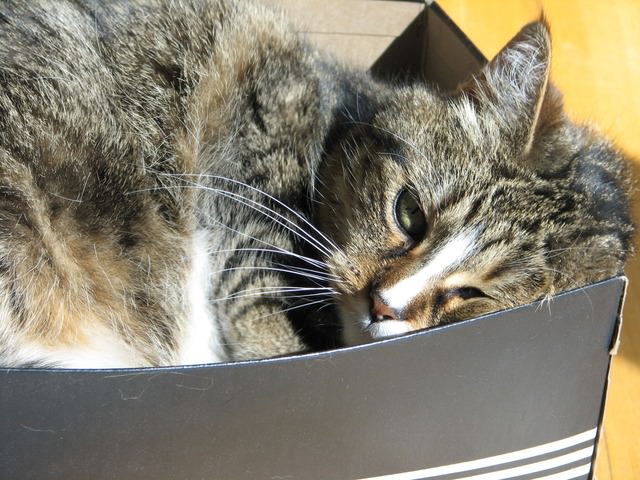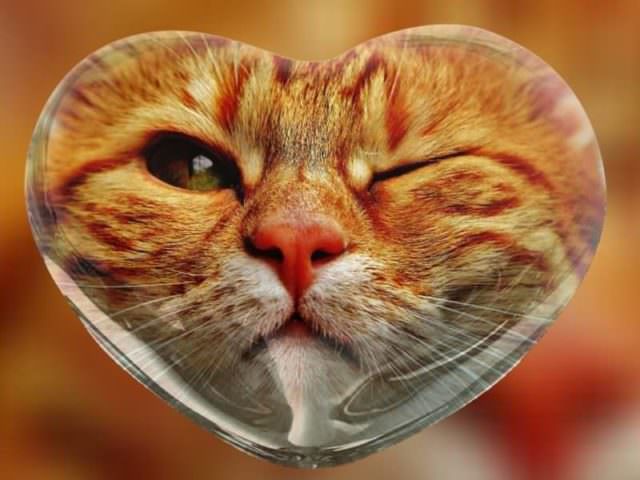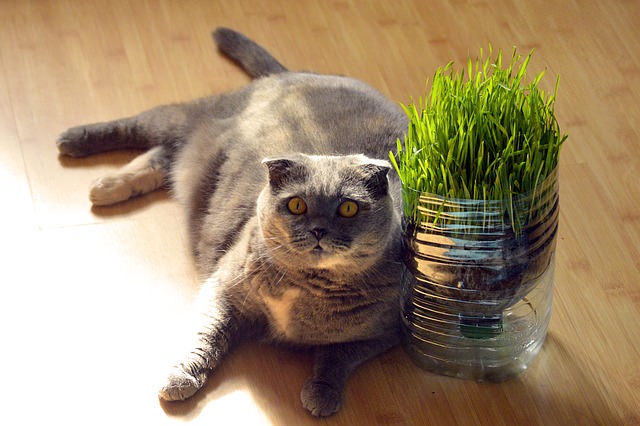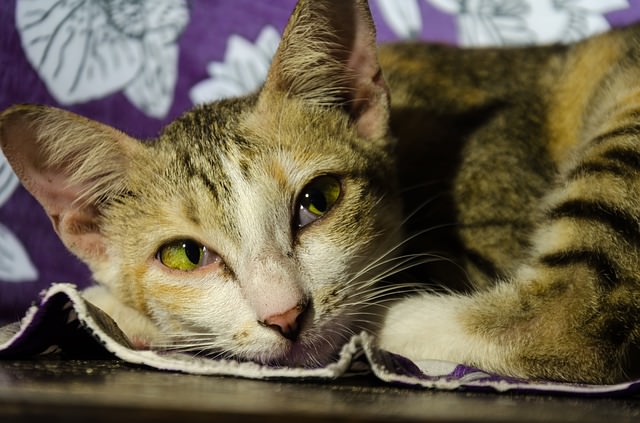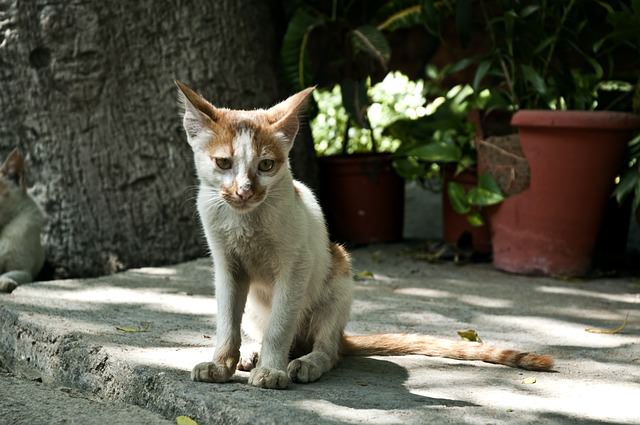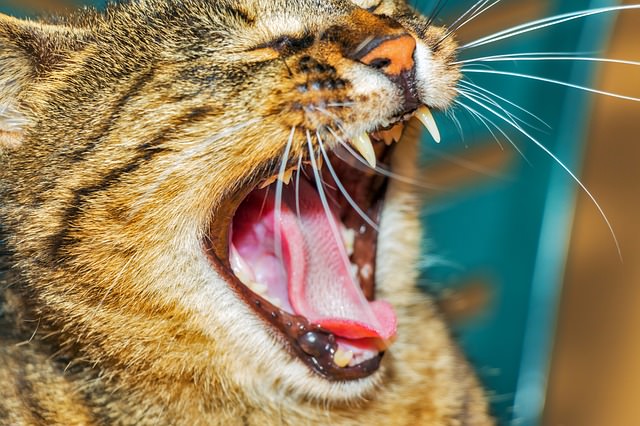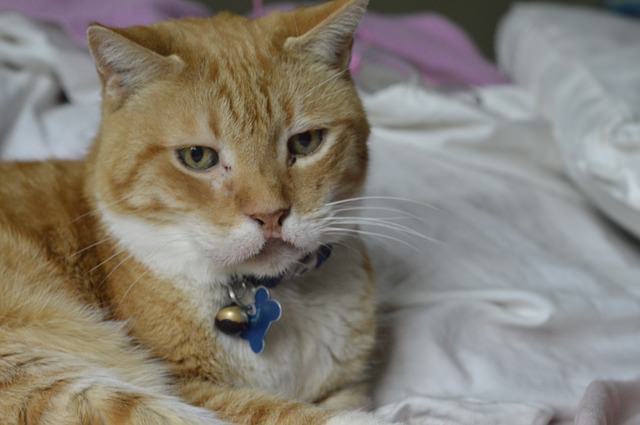Cats are extremely stoic animals, often making it difficult to recognize the subtle signs of illness until the disease has become quite advanced. This is why regular veterinary visits and routine bloodwork are vitally important for cats – especially once they reach their senior years.
The following seven conditions are the most frequently diagnosed in cats ages eight and up.
1. Chronic Renal (Kidney) Disease
The kidneys are the body’s filtration system, removing harmful waste products from the bloodstream and disposing of them through the urine. Senior cats are prone to chronic renal insufficiency, meaning that the kidneys are damaged and no longer efficiently removing toxins from the blood.
Kidney failure can be very painful and lead to weight loss, dehydration, vomiting, poor appetite, increased thirst and urination, dilute urine, urinary accidents, and azotemia – the accumulation of waste products in the blood.
2. Heart Disease
Diseases of the heart are also common in aging cats. One of the most prevalent conditions is cardiomyopathy, in which the cardiac muscle tissue becomes thick, rigid, and enlarged, eventually becoming less effective at pumping blood. Degenerative valvular disease and other types of heart disease are also diagnosed in older cats. The end result of any type of progressive heart disease is deadly congestive heart failure.
3. Diabetes Mellitus
Diabetes is being diagnosed at epidemic rates in humans as well as our pets. Overweight cats with poor diets and sedentary lifestyles are most at-risk for the unregulated blood sugar levels that are the hallmark of the disease.
Regulating the blood sugar usually requires daily insulin injections and frequent monitoring by your vet to prevent diabetic crisis. Diabetes is quite taxing on the heart, kidneys and pancreas, but can be prevented by ensuring your cat maintains a healthy weight and eats a high-quality diet.
4. Arthritis
Many owners miss the signs of arthritis in cats or mistake them for “normal” aging changes. Cats experiencing painful arthritis may sleep more, avoid jumping onto favorite perches, or even become agitated when handled. Arthritis can and should be treated in order to maintain your kitty’s quality of life.
Over the last 12 months, you may have heard about a popular new supplement, CBD oil for cats. Although much more research needs to be done, there’s a wealth of anecdotal evidence and some clinical research that shows it could help cats with joint pain.
5. Hyperthyroidism
Hyperthyroidism occurs when the thyroid gland produces excessive amounts of hormones. Cats with hyperthyroidism tend to lose a good deal of weight despite a voracious appetite. They may also become more vocal and experience a range of symptoms, including vomiting, diarrhea, and increased thirst and urination.
Hyperthyroidism is often mistaken for kidney disease because the symptoms are quite similar. A senior blood profile can pinpoint whether one or both contribute to your cat’s condition.
6. Dental Disease
Dental disease affects 2/3 of cats over three years old and can become a serious issue if allowed to progress. Senior cats suffering from severe dental disease may experience extreme pain, infections of the mouth and internal organs, decreased appetite, and weight loss.
7. Cancer
Many types of cancer can affect cats, and just like all species, the risk factors increase with age. Cancer symptoms vary widely depending on the areas of the body affected.
Remember, nobody knows your senior cat better than you, so if you notice any lumps, bumps, signs of illness, or changes in behavior, make an appointment with your veterinarian for a thorough exam and blood work.
If you’re looking for an easy way to keep a closer eye on your feline’s health, check out PrettyLitter, the color-changing kitty litter that can alert you to abnormalities in your cat’s body. We’re proud to have PrettyLitter as our sponsor, so you can now get 20% off your first month and a FREE toy while supplies last!
H/T to PetMD
Featured Image via Flickr | Ben Salter

